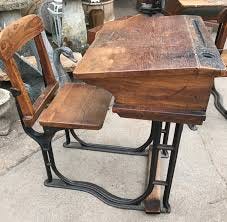If you’ve read my last few posts you’ll see that I’ve been harping on about boundaries. All this is caused by my pondering the possibilities of the boundaries between different dimensions and different worlds.
The main reason for my fascination is that my lovely wife Janine died a few years ago. I’ve come to use the term ‘passed over’ which seems less stark and final, filled with at least a little hope and maybe some permeability.
There are other reasons. As a child I moved 150 miles from London to Chesterfield I Derbyshire but it also felt like crossing a boundary to the middle ages. People used words like youth, thee and thou which were at least vaguely comprehensible and other more arcane words like spice (for treats you bought from a sweet-shop), nebby (nosey), nesh (afraid of cold weather), mardy (grumpy), bonny (as in, Bessy Bunter was a bonny lass), causey (pavement), gammy (injured), kecks (trousers), owt and nowt (anything and nothing), wassock (fool) which is what I felt while navigating this linguistic boundary. And it had the most peculiar church imaginable.
Once I’d crossed over the border to Derbyshire I was sentenced to two years with no remission to a school akin to the Dickensian Dotheboys Hall. It came complete with a sadistic psychopath teacher whose idea of fun was to hide your pen and give you the ruler for losing it, to throw whatever he could find at anyone he chose to. He was finally sacked for caning a kid whose family were too poor to dress him in nice clothes.
I spent the whole of the first year cowering at a Victorian desk, hoping that the sadist would ignore me.
At my school in London, I’d used pencils and didn’t do joined up writing. Now I was forced to write ornate copperplate using a dip ink pen. My exercise books like a gang of spiders had weaved inky webs across the pages.
Other boundaries have featured large in my life. I lived on the edge of the country and was endlessly fascinated by the difference between it and the town. I went to a Secondary Modern School and when I told a careers officer I wanted to be a teacher he sneered and said that no one from my type of school could aspire to such a job. So here was an invisible barrier which became a problem for many years. I was best in my class at writing stories and essays but found grammar completely beyond me. (Still do.) Another barrier and one I still don’t feel inclined to leap over.
Much of my historical fiction has been set in times when boundaries played a key role. I’ve finally finished my set of three novels about the Viking invasion of England in the ninth century and barriers and boundaries are an important part of the narrative. Click here to see the covers.
https://mybook.to/TPNipC
It’s easy to forget that those who lived in the British Isles at that time would not have thought of themselves as English or Scottish, Irish or Welsh. At this time, Scots lived in Ireland, Picts lived in Scotland, England was made up of Northumbria, Mercia, East Anglia and Wessex and the word Welsh was a pejorative English term for foreigners. And then came the Vikings, the hurricane which made the islands anew.
The king who prevented the Viking Great Army from conquering the whole of the country was Alfred of Wessex. After long years of warfare, however, he was thoroughly beaten and was forced to hide on a tiny island in the Somerset marshes. It’s no exaggeration to say that the last English kingdom was only 500 feet wide and 1000 feet long.
The Victorian monument at Athelney.
But, of course, he fought back and defeated the Vikings overwhelmingly. But he was wise enough not to carry on fighting. Instead, he divided the land with his enemies, keeping the south and west for the English and allowing the north and east to be settled in peace by the Vikings. Opportunistically, with an eye to the future, he no longer called himself King of Wessex but King of the English. He built a boundary which held for thirty years until his son and daughter reconquered the lands which the Vikings had settled.
Yet the barriers remained for much longer. The place where the Vikings settled is known as the Danelaw because this is where their laws and customs held sway. The speech of the two parts differed and there are still traces of these differences after over a thousand years. As I’ve illustrated with the language of Chesterfield which is in the heart of the Danelaw.
This marriage of English and Scandinavian is one of the reasons for the richness of the English language. And sometimes for mutual incomprehension. Still at least we only fight with words and not axes.








I love those Derbyshire words, Martin!
Brilliant! Very enjoyable!